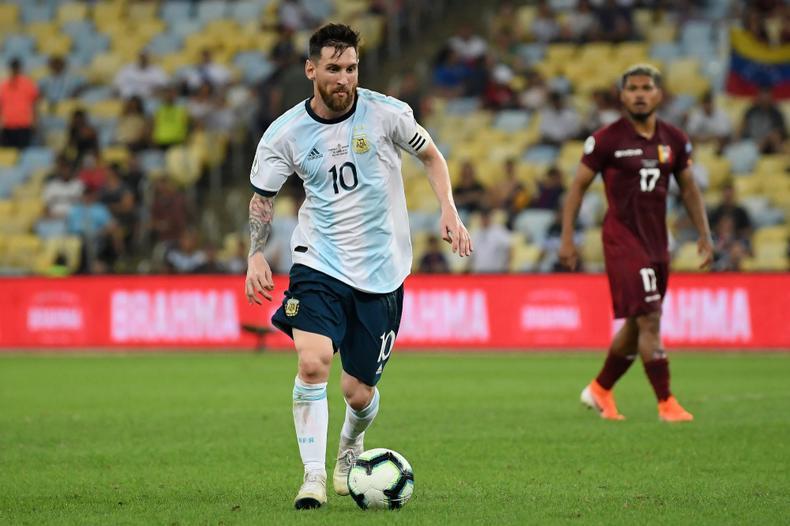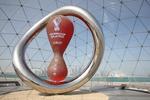Ambush Marketing in Qatar ‘22
With the FIFA World Cup 2022 kicking off, brands will be gearing up to roll out sports-themed advertising and marketing campaigns for the world to see.

As one of the most-watched sporting events globally, the tournament serves as a prime opportunity for brands to get creative with their campaigns.
However, brands need to be alive to the protections in place for official sponsors – so-called “ambush marketing” guidelines.
What is ambush marketing?

Official sponsors of the World Cup, and other major sporting events, provide an important revenue stream for event organisers and, in return, expect to receive exclusive, wide coverage of their campaigns.
This year, official sponsors of the tournament include Adidas, Coca-Cola, Hyundai/KIA, Visa and Qatar Energy.
Ambush marketing is an attempt by a third party – or non-sponsor – to associate itself directly or indirectly with an event, in order to benefit from the attention or prestige of that event but without obtaining consent from, or paying fees to, the event organiser.
Some famous historic examples of ambush marketing are:
- Atlanta Olympics 1996: Sportswear brand Nike took out extensive advertising space on billboards throughout the host city and even bought a building overlooking the official Olympic village, turning it into a ‘Nike Centre’.
- FIFA World Cup 2010: Tying in with one of its ongoing advertising campaigns, brewery Bavaria arranged for a large group of young women to attend a game between the Netherlands and Denmark wearing bright orange mini-dresses, attracting significant attention from TV cameras and spectators.
- UEFA Euro 2012: As part of a goal celebration, Danish footballer Niklas Bendtner displayed his underwear which prominently featured the branding of bookmaker Paddy Power. He was fined £80,000 by UEFA, which Paddy Power reportedly paid on his behalf.
Two main types of ambush marketing:
- “ambush by intrusion” – where non-sponsors carry out unauthorised marketing activity at an event venue to benefit from the attention of spectators, both in-person and on camera; and
- “ambush by association” – where non-sponsors advertise in a way so as to create the impression of an association with the event. This can include anything from promotional activity to prize draws or raffles.
It has become most common to see brands participating in “ambush by association”, particularly due to the reach that social media platforms have in marketing campaigns.
But, with the recent increase in “live” features and “disappearing” posts on social media – seen on Instagram, Snapchat and BeReal – “ambush by intrusion” may rise in popularity.
FIFA explicitly refers to ambush marketing as “prohibited marketing”, making clear that it will be a focus of its brand protection work.
However, this should not deter brands altogether.
If non-sponsors are alive to the various protections in place, there are still ways for brands to produce creative marketing campaigns around the tournament without getting caught offside (legally).
What protections are in place to prevent ambush marketing?
All major event organisers will invest significant time and resource in protecting their event’s brand and FIFA is no exception.

Non-sponsor brands should be aware of FIFA’s extensive brand protection efforts – which not only includes protecting the World Cup brand but its associated assets and official sponsors, too.
Take a look at FIFA's website for more details.
We set out some of the key protections that brands need to navigate, below:
- Intellectual property rights: a variety of FIFA’s brand assets are protected globally by trade mark registrations, copyright and other forms of IPRs.
Registered trade marks include logos for the FIFA World Cup trophy, the Official Emblem and Official Mascot of the tournament, as well as FIFA WORLD CUP, WORLD CUP (in multiple languages) and QATAR 2022.
As the first time the tournament has been held in an Arab nation, FIFA has also protected the official typeface – in both English and Arabic – as a registered design in several jurisdictions. - FIFA’s own guidelines: to assist brands with their advertising and marketing campaigns, FIFA provides a host of resources that includes guidance on how non-sponsors may take part in marketing activities around the tournament without creating unauthorised association with FIFA’s intellectual property.
As guidelines, these are not legally binding on brands but they do provide insight as to activities FIFA is likely to monitor and enforce against. - Local statutory legislation: in anticipation of the World Cup taking place, Qatar passed Law No. 10 of 2021 which includes regulations that protect the intellectual property rights of FIFA and its official partners, and rights to broadcasting games. The legislation also outlines penalties for those who infringe those rights.
Tips for non-sponsors
All of the above is not to say that there aren’t plenty of ways for non-sponsors to advertise in relation to the World Cup (and any other big sporting events). It just requires marketing teams to think creatively.
One well-remembered example of creative marketing from the 2014 World Cup, came from Snickers which exploited Luis Suarez’s infamous bite on Italian defender Giorgio Chiellini by publishing a picture of a Snickers bar on social media with the tagline “More satisfactory than Italian”.
The post did not use any official marks or imply an official association with the tournament.
Another interesting example of a brand flying close to the wind in its advertising around the 2022 tournament is BrewDog’s current campaign in which it describes itself as a “proud anti-sponsor of the World F*Cup”, purportedly due to the circumstances surrounding Qatar being awarded the tournament and human rights issues in the State.
The campaign clearly uses the World Cup as means of promoting the brand of a non-sponsor, but it is equally obvious that there is no commercial connection between BrewDog and the tournament or FIFA.
Legally, the campaign falls on the right side of the line.
Even still, BrewDog has faced some backlash from the public who have pointed out that it will still be showing the games in its bars and continues to sell its beer in Qatar.
However, when considering their marketing campaigns, brands should keep in mind the following tips:
- World Cup trade marks and branding are reserved for FIFA and official rights holders only, so brands should avoid using these.
FIFA’s IP rights also extend to tournament content such as match footage and official songs, so these should not be used without permission. - Between 10 November and 23 December 2022, only official rights holders may advertise or carry out commercial activities in any “controlled commercial area”.
This includes a radius of two kilometres around tournament venues, as well as sites such as team hotels and training grounds. - Promotional activities involving match tickets, for example competitions and giveaways, should also be avoided as these are reserved for official rightsholders only.
Non-sponsors or third parties that are offering tournament tickets as prizes but do not have approval from FIFA to do so may risk winners being turned away from matches. - Always be clear as to the official or non-official nature of your relationship with FIFA or the tournament. Avoid any attempts to mislead consumers into believing your brand is associated with the tournament if it is not.
- Be aware of the wider legal and commercial risks.
Ensure you comply with national advertising legislation and local regulatory bodies, and carefully weigh up the value of potential brand exposure versus the risk of reputational damage if your campaign is performed irresponsibly. - Issue instructions to your marketing team, and keep a close eye on their activities.
Marketers often respond to current events in real time on social media. It is easy to inadvertently break the rules if referring to the World Cup.
To get advice on how you should manage your brand, the best first step is to get in touch with a Chartered Trade Mark Attorney. Click here to explore our directory.
This blog was authored by:
Stuart Helmer, Of Counsel, CMS
Oscar Webb, Senior Associate, CMS
Rosie Lapper, Associate, CMS
Please click here to see more about CMS, or access any of the authors by email by clicking on their name.

